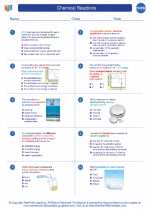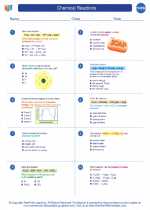Spectrometers
A spectrometer is a scientific instrument used to measure properties of light over a specific portion of the electromagnetic spectrum. It is widely used in various fields such as chemistry, physics, astronomy, and environmental science to analyze the composition of materials and determine the characteristics of light emitted or absorbed by substances.
Types of Spectrometers
There are several types of spectrometers, each designed for specific applications:
- UV-Visible Spectrometer: This type of spectrometer measures the absorption and transmission of light in the ultraviolet and visible regions of the electromagnetic spectrum. It is commonly used for analyzing the electronic transitions in organic and inorganic compounds.
- Infrared (IR) Spectrometer: IR spectrometers measure the absorption, reflection, and transmission of infrared light. They are used to identify functional groups in organic molecules and analyze the structure of chemical compounds.
- Nuclear Magnetic Resonance (NMR) Spectrometer: NMR spectrometers are used to study the interaction of nuclei with external magnetic fields. They are essential for determining the structure of organic compounds and elucidating molecular structures.
- Mass Spectrometer: Mass spectrometers measure the mass-to-charge ratio of ions to identify and quantify chemical compounds. They are widely used in analytical chemistry and biochemistry for identifying unknown compounds and studying isotopic composition.
- Fluorescence Spectrometer: This type of spectrometer measures the fluorescence emitted by a substance when it absorbs light energy. It is used in biochemistry, environmental analysis, and material science to characterize fluorescent compounds.
Principles of Operation
Spectrometers operate based on the principles of interaction between light and matter. When a sample is subjected to light, it may absorb certain wavelengths, resulting in an electronic transition or molecular vibration. The spectrometer measures the intensity of light at different wavelengths or frequencies, providing valuable information about the sample's composition, structure, and properties.
Applications
Spectrometers are utilized in a wide range of applications, including:
- Quantitative analysis of chemical compounds
- Identification of unknown substances
- Structural elucidation of organic and inorganic molecules
- Characterization of biomolecules and proteins
- Environmental monitoring and analysis
- Astronomical spectroscopy for studying celestial objects
Study Guide
For a comprehensive understanding of spectrometers, students should focus on the following key areas:
- Understanding the electromagnetic spectrum and the interaction of light with matter.
- Principles of absorption, emission, and scattering of light in different regions of the spectrum.
- Operating principles and components of specific types of spectrometers, such as UV-Visible, IR, NMR, Mass, and Fluorescence spectrometers.
- Applications of spectrometers in various scientific disciplines and industries.
- Data interpretation and analysis techniques for spectral data obtained from spectrometers.
Practical experience with using spectrometers and interpreting spectral data through laboratory experiments and case studies is crucial for reinforcing theoretical knowledge.
By mastering the principles and applications of spectrometers, students can develop essential skills in analytical chemistry, spectroscopy, and scientific instrumentation, paving the way for careers in research, pharmaceuticals, environmental science, and other related fields.
.◂Chemistry Worksheets and Study Guides High School. Chemical Reactions

 Worksheet/Answer key
Worksheet/Answer key
 Worksheet/Answer key
Worksheet/Answer key
 Worksheet/Answer key
Worksheet/Answer key
 Worksheet/Answer key
Worksheet/Answer key
 Worksheet/Answer key
Worksheet/Answer key
 Vocabulary/Answer key
Vocabulary/Answer key
 Vocabulary/Answer key
Vocabulary/Answer key
 Vocabulary/Answer key
Vocabulary/Answer key
